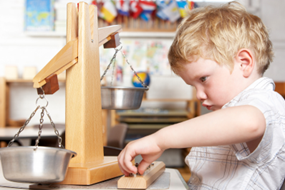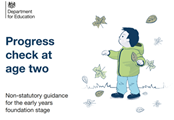Early Years Education
Sefton
In Sefton, we strongly believe in high quality early education for all children in the local authority. Our Early Years team at the local authority, along with our childminders, settings and schools are all passionate in ensuring our Sefton children are happy, safe and enjoy learning. We strive for ‘Education Excellence’.
What are the Early Years?
‘Early Years’ in Education describes the phase of Education from birth to the end of Reception (0-5 years). Providers of Early Years Education and Childcare may operate in different ways and will vary in the session times they offer and in cost. All Early Years Providers in England including Private, Voluntary and Independent Nurseries, Childminders and Schools must follow the Early Years Foundation Stage Framework.
What to expect in the Early Years
When your child is in the Early Years Foundation Stage they will learn and develop through games and play. Play is important for the early stages of brain development, to develop communication and also encourages children to foster a love of learning.
There are many reasons why play is important and the National Literacy Trust identifies 10 reasons why:
- Play is fun
- Play is learning
- Play gives children choice
- Play gives children space
- Play allows children to explore and learn about body language
- Play develops communication
- Play lays the foundations for literacy
- Play encourages children to be spontaneous
- Play teaches patience and understanding
- Play allows children to take risks
Areas of learning
Children are encouraged to develop their curiosity through different areas of learning. In the EY Framework, there are Seven areas of learning that have been identified, these are split into prime areas, which are fundamental in supporting development in the specific areas.
The 7 areas of learning are:
- Communication and Language
- Personal, Social and Emotional development
- Physical Development
- Literacy
- Mathematics
- Understanding the World
- Expressive Arts and Design
Find out more about each area of learning
The characteristics of effective Learning
The Early Years framework outlines characteristics of effective teaching and learning. The framework states that in planning and guiding what children learn, practitioners must reflect on the different rates at which children are developing and adjust their practice appropriately. The three characteristics of effective teaching and learning are:
- Playing and exploring - children investigate and experience things, and ‘have a go’.

• Active learning - children concentrate and keep on trying if they encounter difficulties, and enjoy achievements.

• Creating and thinking critically - children have and develop their own ideas, make links between ideas, and develop strategies for doing things.

Find out more about the Early Years Foundation Stage Curriculum and the areas of learning with this guide for parents.
Assessments
Assessment of learning and development is essential in helping parents, carers and practitioners to recognise children’s progress, understand their needs and plan activities that will help them to develop. Teachers and practitioners can assess children accurately when they have a strong relationship with them. Children show their true potential when they are able to learn through their interests with an interested and knowledgable adult working alongside them.
Practitioners should keep parents/carers up to date with their child’s progress. Any learning and development needs should be assessed in partnership with parents/carers and any other relevant professionals.
The statutory assessments include:
Progress check at age two

When a child is aged between 2 and 3 years, practitioners must review their progress and provide parents with a summary of their development in the prime areas. The summary must:
- Highlight which areas a child is progressing well in
- Highlight areas in which some additional support might be needed
- Focus particularly on any areas where there is a concern that a child may have a developmental delay, which may indicate a special educational need or disability.
- Describe the activities and strategies the provider intends to adopt to address any issues or concerns. This plan should involve parents and carers and other professionals (for example, the provider’s Special Educational Needs Co-ordinator (SENCO) or health professionals) as appropriate.
Beyond the prime areas, it is up to practitioners to decide what the written summary should include. For more information about the progress check at age two, visit GOV.UK
Assessments at the start of the Reception year
The Reception Baseline Assessment (RBA) is a short assessment, taken in the first six weeks in which a child starts reception.
The RBA:
- Assesses a child's learning and development in early mathematics, literacy, and communication and language
- Is an inclusive assessment which is accessible to the majority of pupils on entry to school. It has been designed so that pupils with SEND and those learning English as an additional language can participate.
- Is used to form the starting point for cohort-level school progress measures. Data from the RBA is compared to key stage 2 outcomes 7 years later to form the overall progress measure for a school.
- Is not used to make judgements about Early Years provision.
In some rare cases, headteachers may consider the RBA inaccessible to a pupil. In this case, disapplication may be considered. Disapplication is permitted for individual pupils who are unable to participate, even when using suitable access arrangements. Headteachers must make the final decision about whether it is appropriate for a pupil to take the RBA, and this decision should be discussed with the pupil’s parents and teachers.
Assessments at the end of the Early Years Foundation Stage – The Early Years Foundation Stage Profile (EYFSP)

In the final term of the year in which the child reaches age five, and no later than 30th June in that term, the EYFS Profile must be completed for each child. The Profile provides parents and carers, practitioners and teachers with a well-rounded picture of a child’s knowledge, understanding and abilities, their attainment against expected levels, and their readiness for year 1.
The EYFSP must have the following:
- Each child’s level of development must be assessed against the early learning goals.
- Practitioners must note whether children are meeting expected levels of development, or if they are not yet reaching expected levels (“emerging”)
- Results of the Profile must be shared with parents and/or carers, and explain to them when and how they can discuss the Profile with the practitioner who completed it.
- Early years providers must report EYFS Profile results to local authorities, upon request. 7 Local authorities are under a duty to return this data to the relevant Government department
For children attending more than one setting, the Profile must be completed by the setting where the child spends most time. If a child moves to a new setting during the academic year, the original setting must send their assessment of the child’s level of development against the early learning goals to the relevant school within 15 days of receiving a request. If a child moves during the summer term, relevant providers must agree which of them will complete the Profile.
Reasonable adjustments to the assessment process for children with SEND must be made as appropriate. Providers should consider whether they may need to seek specialist assistance to help with this.

